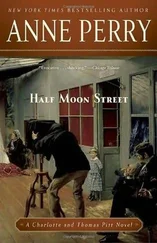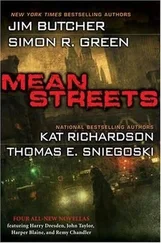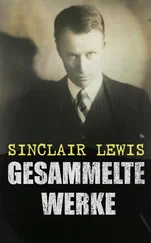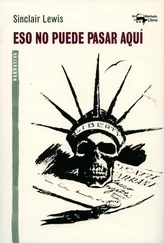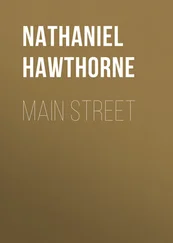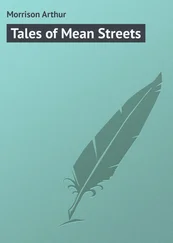Sinclair Lewis - Main Street
Здесь есть возможность читать онлайн «Sinclair Lewis - Main Street» — ознакомительный отрывок электронной книги совершенно бесплатно, а после прочтения отрывка купить полную версию. В некоторых случаях можно слушать аудио, скачать через торрент в формате fb2 и присутствует краткое содержание. Жанр: unrecognised, на английском языке. Описание произведения, (предисловие) а так же отзывы посетителей доступны на портале библиотеки ЛибКат.
- Название:Main Street
- Автор:
- Жанр:
- Год:неизвестен
- ISBN:нет данных
- Рейтинг книги:3 / 5. Голосов: 1
-
Избранное:Добавить в избранное
- Отзывы:
-
Ваша оценка:
- 60
- 1
- 2
- 3
- 4
- 5
Main Street: краткое содержание, описание и аннотация
Предлагаем к чтению аннотацию, описание, краткое содержание или предисловие (зависит от того, что написал сам автор книги «Main Street»). Если вы не нашли необходимую информацию о книге — напишите в комментариях, мы постараемся отыскать её.
libreka classics – These are classics of literary history, reissued and made available to a wide audience.
Immerse yourself in well-known and popular titles!
Main Street — читать онлайн ознакомительный отрывок
Ниже представлен текст книги, разбитый по страницам. Система сохранения места последней прочитанной страницы, позволяет с удобством читать онлайн бесплатно книгу «Main Street», без необходимости каждый раз заново искать на чём Вы остановились. Поставьте закладку, и сможете в любой момент перейти на страницу, на которой закончили чтение.
Интервал:
Закладка:
"Really?"
(Why was she thinking of Stewart Snyder?)
"Gopher Prairie is going to have a great future. Some of the best dairy and wheat land in the state right near there—some of it selling right now at one-fifty an acre, and I bet it will go up to two and a quarter in ten years!"
"Is——Do you like your profession?"
"Nothing like it. Keeps you out, and yet you have a chance to loaf in the office for a change."
"I don't mean that way. I mean—it's such an opportunity for sympathy."
Dr. Kennicott launched into a heavy, "Oh, these Dutch farmers don't want sympathy. All they need is a bath and a good dose of salts."
Carol must have flinched, for instantly he was urging, "What I mean is—I don't want you to think I'm one of these old salts-and-quinine peddlers, but I mean: so many of my patients are husky farmers that I suppose I get kind of case-hardened."
"It seems to me that a doctor could transform a whole community, if he wanted to—if he saw it. He's usually the only man in the neighborhood who has any scientific training, isn't he?"
"Yes, that's so, but I guess most of us get rusty. We land in a rut of obstetrics and typhoid and busted legs. What we need is women like you to jump on us. It'd be you that would transform the town."
"No, I couldn't. Too flighty. I did used to think about doing just that, curiously enough, but I seem to have drifted away from the idea. Oh, I'm a fine one to be lecturing you!"
"No! You're just the one. You have ideas without having lost feminine charm. Say! Don't you think there's a lot of these women that go out for all these movements and so on that sacrifice——"
After his remarks upon suffrage he abruptly questioned her about herself. His kindliness and the firmness of his personality enveloped her and she accepted him as one who had a right to know what she thought and wore and ate and read. He was positive. He had grown from a sketched-in stranger to a friend, whose gossip was important news. She noticed the healthy solidity of his chest. His nose, which had seemed irregular and large, was suddenly virile.
She was jarred out of this serious sweetness when Marbury bounced over to them and with horrible publicity yammered, "Say, what do you two think you're doing? Telling fortunes or making love? Let me warn you that the doc is a frisky bacheldore, Carol. Come on now, folks, shake a leg. Let's have some stunts or a dance or something."
She did not have another word with Dr. Kennicott until their parting:
"Been a great pleasure to meet you, Miss Milford. May I see you some time when I come down again? I'm here quite often—taking patients to hospitals for majors, and so on."
"Why——"
"What's your address?"
"You can ask Mr. Marbury next time you come down—if you really want to know!"
"Want to know? Say, you wait!"
II
Of the love-making of Carol and Will Kennicott there is nothing to be told which may not be heard on every summer evening, on every shadowy block.
They were biology and mystery; their speech was slang phrases and flares of poetry; their silences were contentment, or shaky crises when his arm took her shoulder. All the beauty of youth, first discovered when it is passing—and all the commonplaceness of a well-to-do unmarried man encountering a pretty girl at the time when she is slightly weary of her employment and sees no glory ahead nor any man she is glad to serve.
They liked each other honestly—they were both honest. She was disappointed by his devotion to making money, but she was sure that he did not lie to patients, and that he did keep up with the medical magazines. What aroused her to something more than liking was his boyishness when they went tramping.
They walked from St. Paul down the river to Mendota, Kennicott more elastic-seeming in a cap and a soft crepe shirt, Carol youthful in a tam-o'-shanter of mole velvet, a blue serge suit with an absurdly and agreeably broad turn-down linen collar, and frivolous ankles above athletic shoes. The High Bridge crosses the Mississippi, mounting from low banks to a palisade of cliffs. Far down beneath it on the St. Paul side, upon mud flats, is a wild settlement of chicken-infested gardens and shanties patched together from discarded sign-boards, sheets of corrugated iron, and planks fished out of the river. Carol leaned over the rail of the bridge to look down at this Yang-tse village; in delicious imaginary fear she shrieked that she was dizzy with the height; and it was an extremely human satisfaction to have a strong male snatch her back to safety, instead of having a logical woman teacher or librarian sniff, "Well, if you're scared, why don't you get away from the rail, then?"
From the cliffs across the river Carol and Kennicott looked back at St. Paul on its hills; an imperial sweep from the dome of the cathedral to the dome of the state capitol.
The river road led past rocky field slopes, deep glens, woods flamboyant now with September, to Mendota, white walls and a spire among trees beneath a hill, old-world in its placid ease. And for this fresh land, the place is ancient. Here is the bold stone house which General Sibley, the king of fur-traders, built in 1835, with plaster of river mud, and ropes of twisted grass for laths. It has an air of centuries. In its solid rooms Carol and Kennicott found prints from other days which the house had seen—tail-coats of robin's-egg blue, clumsy Red River carts laden with luxurious furs, whiskered Union soldiers in slant forage caps and rattling sabers.
It suggested to them a common American past, and it was memorable because they had discovered it together. They talked more trustingly, more personally, as they trudged on. They crossed the Minnesota River in a rowboat ferry. They climbed the hill to the round stone tower of Fort Snelling. They saw the junction of the Mississippi and the Minnesota, and recalled the men who had come here eighty years ago—Maine lumbermen, York traders, soldiers from the Maryland hills.
"It's a good country, and I'm proud of it. Let's make it all that those old boys dreamed about," the unsentimental Kennicott was moved to vow.
"Let's!"
"Come on. Come to Gopher Prairie. Show us. Make the town—well—make it artistic. It's mighty pretty, but I'll admit we aren't any too darn artistic. Probably the lumber-yard isn't as scrumptious as all these Greek temples. But go to it! Make us change!"
"I would like to. Some day!"
"Now! You'd love Gopher Prairie. We've been doing a lot with lawns and gardening the past few years, and it's so homey—the big trees and——And the best people on earth. And keen. I bet Luke Dawson——"
Carol but half listened to the names. She could not fancy their ever becoming important to her.
"I bet Luke Dawson has got more money than most of the swells on Summit Avenue; and Miss Sherwin in the high school is a regular wonder—reads Latin like I do English; and Sam Clark, the hardware man, he's a corker—not a better man in the state to go hunting with; and if you want culture, besides Vida Sherwin there's Reverend Warren, the Congregational preacher, and Professor Mott, the superintendent of schools, and Guy Pollock, the lawyer—they say he writes regular poetry and—and Raymie Wutherspoon, he's not such an awful boob when you get to KNOW him, and he sings swell. And——And there's plenty of others. Lym Cass. Only of course none of them have your finesse, you might call it. But they don't make 'em any more appreciative and so on. Come on! We're ready for you to boss us!"
They sat on the bank below the parapet of the old fort, hidden from observation. He circled her shoulder with his arm. Relaxed after the walk, a chill nipping her throat, conscious of his warmth and power, she leaned gratefully against him.
"You know I'm in love with you, Carol!"
Читать дальшеИнтервал:
Закладка:
Похожие книги на «Main Street»
Представляем Вашему вниманию похожие книги на «Main Street» списком для выбора. Мы отобрали схожую по названию и смыслу литературу в надежде предоставить читателям больше вариантов отыскать новые, интересные, ещё непрочитанные произведения.
Обсуждение, отзывы о книге «Main Street» и просто собственные мнения читателей. Оставьте ваши комментарии, напишите, что Вы думаете о произведении, его смысле или главных героях. Укажите что конкретно понравилось, а что нет, и почему Вы так считаете.

